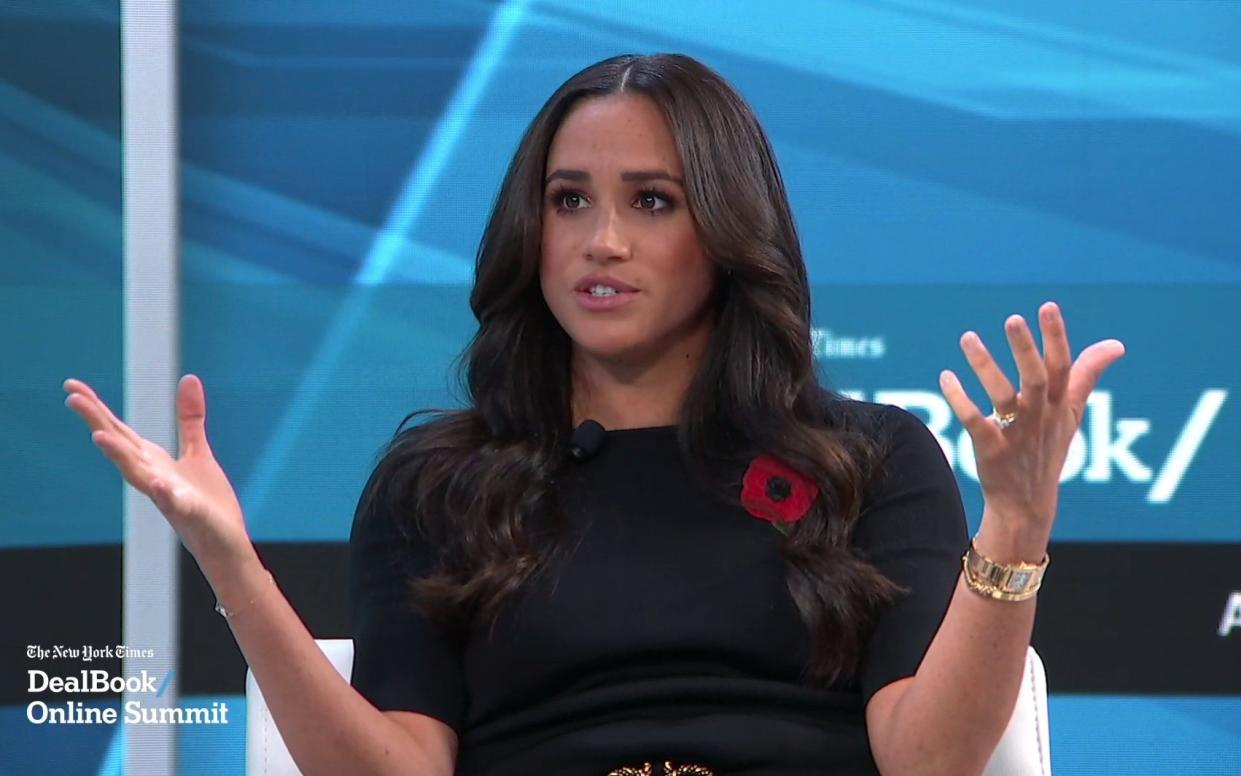Laws could be changed to protect press freedoms following Meghan, Duchess of Sussex's legal victory

Downing Street has hinted at introducing new safeguards to protect the freedom of the press, in the wake of the Duchess of Sussex’s legal victory over the Mail on Sunday.
The Government would “study the implications” of the Court of Appeal decision in the case “carefully”, a spokesman for Boris Johnson announced on Friday.
No 10 stressed that “a free press is one of the cornerstones of any democracy”, and added: “This Government recognises the vital role that newspapers and the media play in holding people to account and shining a light on issues which matter to communities.”
Boris Johnson’s spokesman added he could not comment “too much further” on the matter, as the Duchess of Sussex’s privacy row with Associated Newspapers Ltd was an ongoing legal case.
The intervention came after the Court of Appeal ruled on Thursday that the Duchess of Sussex’s “unfortunate lapse of memory” over briefing her biographers should not change the outcome of the summary judgment made in her favour earlier this year.
She had successfully sued the publisher of the Mail on Sunday for a breach of her privacy, data protection and copyright after it printed extracts from a handwritten letter to her father, Thomas Markle. A High Court judge had ruled in her favour without a full trial.
This month Associated Newspapers brought an appeal against that decision, arguing her “credibility” should be tested at trial. Court of Appeal judges dismissed the appeal this week.
The Mail on Sunday said it would consider taking the case to the Supreme Court.
Politicians, lawyers and campaigners raised concerns in the wake of the latest judgment that the courts are interpreting the law in a way that extends privacy rights beyond what was intended by Parliament.
Judge-led privacy laws a 'matter of great concern'
John Whittingdale, the former Tory culture secretary, accused judges of creating far-reaching privacy laws without parliamentary scrutiny, branding it a “matter of great concern”.
Geoffrey Robertson QC, the leading human rights barrister, said earlier this week: “Privacy is now a growth industry. The law has been developed – in fact, created – by judges. But instead of applying a presumption in favour of free speech, they purport to ‘balance’ it with often over-valued reputations of rich and famous litigants.”
He warned that the “horrendous” cost for media organisations of defending such legal actions was becoming “a deterrent to public-interest journalism”. The result was that “we do not have free speech – we have expensive speech” in the UK, he said.
On Friday, a government source told The Telegraph that laws were already in place that assert the freedom of the press and freedom of speech, but added that ministers would look at “making sure there is protection to report things that are necessary for public interest purposes”.
'Unease' over decision in some parts of Government
A second source said that there had been “unease” in some quarters of the Government at the Court of Appeal ruling and the implications it may entail.
Prior to 1997, England and Wales did not have a specific law governing privacy, but the introduction of the Human Rights Act demanded courts balance a person’s right to a private life against the right to free speech.
It is thought that the Government may look at addressing the issue as part of a review of the Human Rights Act that Dominic Raab is conducting at present. The results of the independent probe into the controversial statute are expected to be unveiled before Christmas.
Another option is thought be including a provision in the upcoming Online Harms Bill to clarify free speech powers and prevent the encroachment of privacy case law. Draft legislation is set to be published on December 14, with the full Bill going to second reading next Easter.

